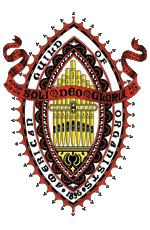Shorter Organ Masterworks
Dear John,
I would like to introduce my congregation to organ masterworks during the service; but to accommodate the limited available time for prelude and postlude, I feel compelled to select shorter and less substantial works. What might I do?
—Stacey Stymied
Dear Stacey,
For more than 400 years musicians have encountered the question which you have raised: how best to provide the finest musical offering within liturgical time constraints. As a complement to chorale preludes and individual movements of sonatas and suites, there exists an historic and honorable tradition of performing abbreviated sections of longer masterworks.
As early as 1615 Girolamo Frescobaldi wrote in the forward to his first book of toccatas that the player may conclude each work at any convenient cadence (doubtless to tailor the piece to the time available for its use in the mass):
I have seen to it not only that [these works] are rich in varied sections and moods but also that one may play each section separately, so that the player can stop wherever he wishes.
Twenty years later (1635), in the preface to his Fiori musicali, Frescobaldi, the quintessential liturgical musician, wrote this similar advice:
My main purpose is to help organists….(who) may use these verses as they please. Canzone and Ricercari may be concluded at the cadences when they are too long.
Numerous large works of other composers may also be tailored for liturgical use in similar manner:
Bach, Pièce d’Orgue, BWV 572 The central section (Grave) may be excerpted as a standalone composition for a Lenten prelude, postlude or for a stately procession. The last two-anda-half measures of the final section (Lentement) might be a helpful resolution to the diminished-seventh chord at the end of the Grave section.
Franck, Grande Pièce Symphonique The Andante which begins the second section of this large composition is effective as a quiet service prelude. The concluding section (Beaucoup largement) works well as a service postlude.
What other ways have you discovered to adapt longer masterworks to service use? Might you be willing to share those discoveries with your colleagues in the Baltimore Chapter? I invite you to send those recommendations to me at JW4700@gmail.com Let’s help each other to find ways to present organ music of the greatest value to our congregations! More ideas to follow!
John Walker
